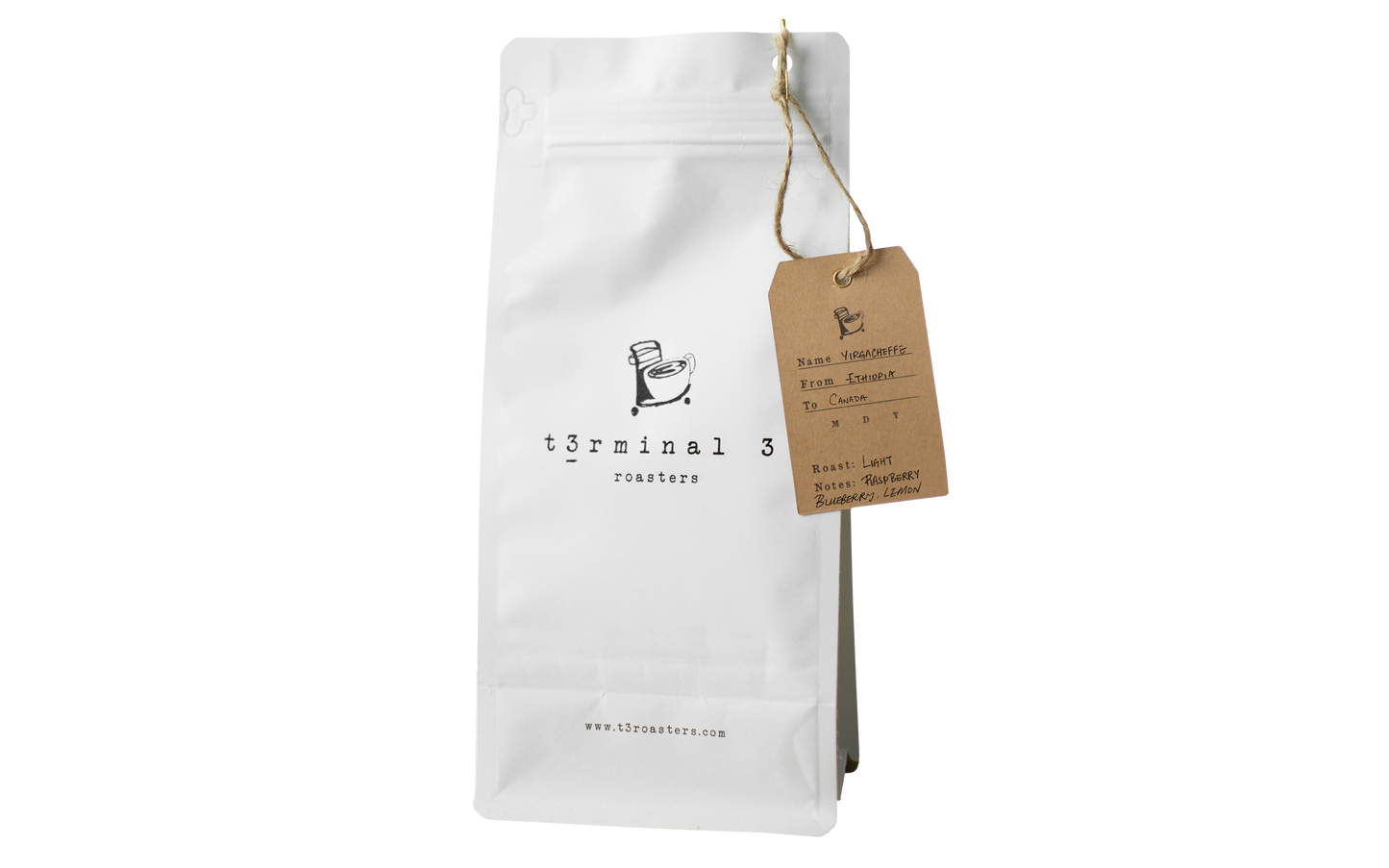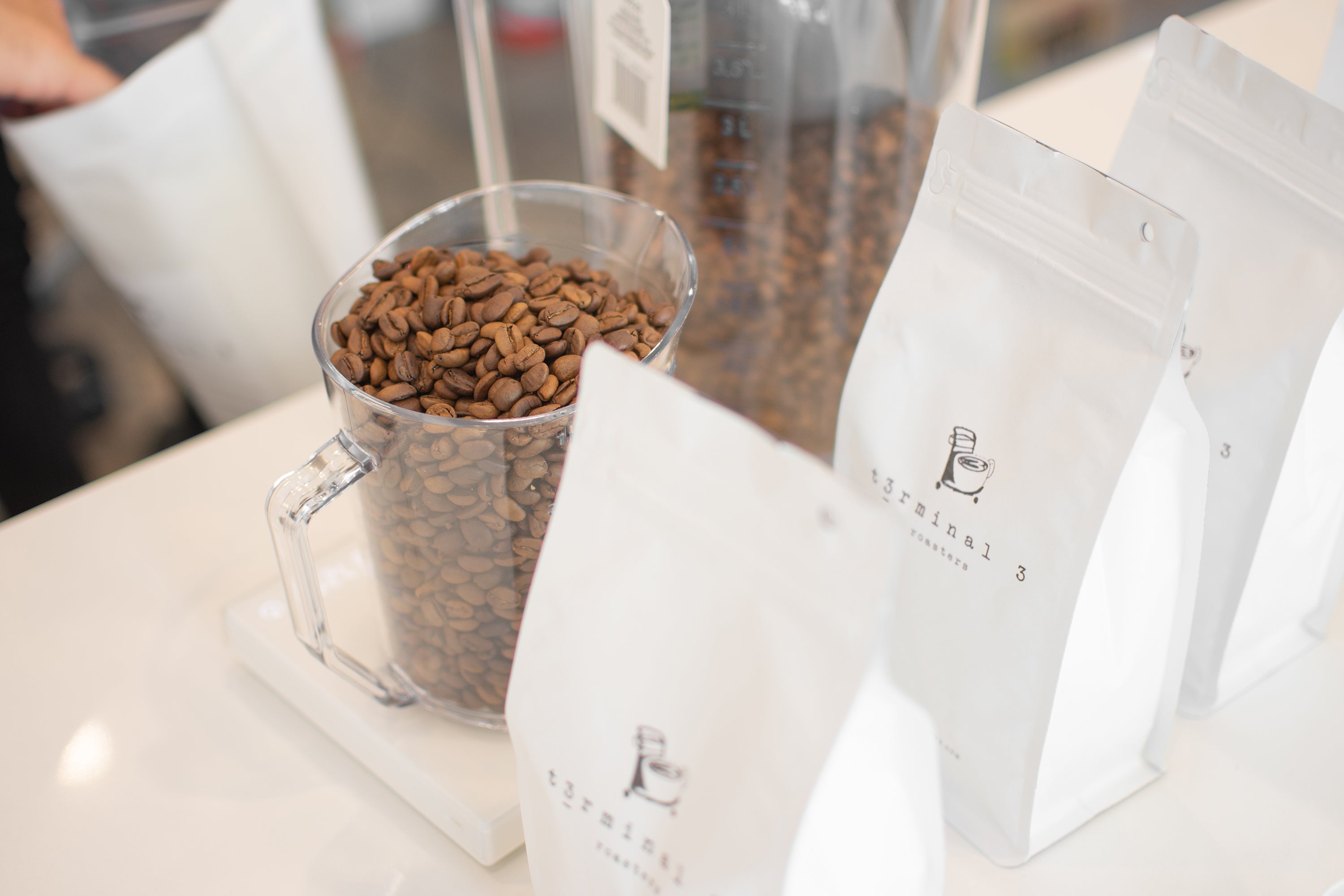Ethiopia - Natural Yirgacheffe
Ethiopia - Natural Yirgacheffe
Couldn't load pickup availability
- Light Roast
- Yirgacheffe, Ethiopia
- Heirloom Ethiopian Varieties – Natural
- 1800 Meters Above Sea Level
- Raisin, Prune, Dried Blueberry – Honey
- 340g | 12oz
- Pourover, Drip, French Press
Acidity ◉ ◉ ◉ ○ ○ Body ◉ ◉ ◉ ○ ○
Sweetness ◉ ◉ ◉ ○ ○ Aftertaste ◉ ◉ ○ ○ ○
Please note: Pre-ground coffee beans can quickly lose their freshness, resulting in a notable decrease in aroma and flavor. For this reason, we do not offer a grinding service. We strongly encourage our customers to grind their coffee beans just before use for the best experience.
View full details

Terminal 3 at Home
Brewing Recipes
V60 Style
Water Temperature → 93 °C
Grind Size → 1100 μm (Medium Coarse)
Dry Dose → 19g
Water Ratio → 1:16
Water → Third Wave Water - Classic Light Roast Profile
Brewing Strength → TDS 1.40
Pouring Method
Bloom - 0:00 - 50g
First Pour - 0:30 - 120g
Second Pour - 1:30 - 210g
Third Pour - 2:10 - 300g
Total Brewing Time → 2:50 min
Flat Bottom
Water Temperature → 93 °C
Grind Size → 1150 μm (Medium Coarse)
Dry Dose → 19g
Water Ratio → 1:16
Water → Third Wave Water - Classic Light Roast Profile
Brewing Strength → TDS 1.42
Pouring Method
Bloom - 0:00 - 50g
First Pour - 0:30 - 120g
Second Pour - 1:30 - 210g
Third Pour - 2:10 - 300g
Total Brewing Time → 2:50 min
French Press
Water Temperature → 93 °C
Grind Size → Medium Coarse
Dry Dose → 30g
Water Ratio → 1:15
Pouring Method
Pour - 0:00 - 450g
Stir in Circles for 3 Times at 3:00 min
Total Brewing Time → 5:00 min

About the bean
This coffee hails from Ethiopian Yirgacheffe and stands out as our preferred fruity option for daily enjoyment. It shines especially in drip coffee, French press, and pour-over methods. Served hot, it unveils notes of dried blueberry, raisin, and prune. When served over ice, it reveals more pronounced flavors of jasmine green tea and blueberry.
Coffees in Ethiopia are typically grown on very small plots of land by farmers who also grow other crops. The majority of smallholders will deliver their coffee in cherry to a nearby washing station or central processing unit, where their coffee will be sorted, weighed, and paid for or given a receipt. The washing stations serve as many as several hundred to sometimes a thousand or more producers, who deliver cherry throughout the harvest season: The blending of these cherries into day lots makes it virtually impossible under normal circumstances to know precisely whose coffee winds up in which bags on what day, making traceability to the producer difficult. We do, however, make every available effort to source coffee from the same washing stations every year, through our export partners and their connections with mills and washing stations.


